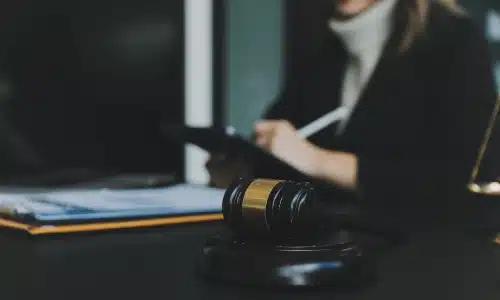
Suddenly, paradise can turn into a scene of pain, frustration, and financial hardship.
Here at the CEO Lawyer Personal Injury Law Firm, we understand the complexities of defective product claims and the specific challenges faced by Bluffton residents. Our dedicated team of defective product serving Bluffton is committed to protecting your rights and holding manufacturers accountable for putting faulty products on the market.
Let a Defective Product Attorney Serving Bluffton Navigate the Legal Matters for You
Imagine purchasing a new beach umbrella for a relaxing day on Hilton Head Island. As you set it up, the mechanism fails, and the umbrella collapses, injuring your hand.
Or, perhaps, you buy a faulty kayak on a whim, only to find it capsizes mid-stream, leaving you stranded and at risk. These scenarios, while seemingly unrelated, highlight the potential dangers posed by defective products commonly used in Bluffton.
How a Defective Product Legal Team Serving Bluffton Can Help
Facing a product-related injury can be overwhelming. Medical bills pile up, lost wages impact your finances, and the emotional toll of the accident can be significant.
A defective product legal team serving Bluffton from the CEO Lawyer Personal Injury Law Firm can help you navigate this challenging situation by:
- Investigating the Product: Our team will thoroughly investigate the product that caused your injury. This may involve collecting physical evidence, reviewing product manuals and safety warnings, and potentially engaging product liability professionals.
- Understanding South Carolina Product Liability Laws: The legal principles surrounding product liability claims in South Carolina can be complex. We’ll analyze the specifics of your case to determine if you have a valid claim against the manufacturer, distributor, or retailer of the product.
- Building a Strong Case: Our personal injury legal team serving Bluffton will gather evidence, including medical records, witness testimonies, and product defect reports, to build a compelling case that demonstrates the product’s defectiveness and connection to your injuries.
- Negotiating with Insurance Companies: Dealing with insurance companies after a product-related injury can be stressful. We’ll handle all communication with the insurance company to ensure you receive a fair settlement for your medical expenses, lost wages, pain and suffering, and any long-term effects of your injury.
- Taking Your Case to Court (if necessary): If a fair settlement isn’t reached through negotiations, we’ll be prepared to fight for your rights in court.
Why You Shouldn’t Wait
South Carolina has a statute of limitations for product liability claims, typically three years from the date of the injury. While this provides some time to act, it’s crucial not to delay seeking legal advice. Here’s why:
- Evidence Preservation: Over time, physical evidence can deteriorate, and witness memories can fade. The sooner you involve a legal team, the better chance we have of gathering crucial evidence to support your claim.
- Medical Records: Medical records documenting your injury and treatment are essential for any product liability claim. A legal team can assist in obtaining and analyzing these records.
- Strengthening Your Case: A prompt investigation allows us to identify potential witnesses and gather evidence while it’s still readily available. This strengthens your case and increases your chances of a successful outcome.
What Is a Defective Product?
In the context of personal injury law, a defective product is any item placed on the market that poses an unreasonable danger to consumers due to a flaw in its design, manufacturing, or labeling. These flaws can lead to serious injuries and even death.
Here’s a breakdown of the three main types of product defects:
Design Defect
This occurs when the inherent design of the product itself is unsafe, regardless of how it’s manufactured. Here are some examples:
- Children’s Toys with Small Parts: Toys with detachable pieces that pose a choking hazard for young children are a classic example of a design defect.
- Unstable Furniture: Coffee tables or chairs with a weak design that could easily tip over and cause injury.
- Vehicles with Blind Spots: A car design with significant blind spots that obstruct the driver’s view can be considered a design defect.
Manufacturing Defect
Here, an error occurs during the manufacturing process, causing a specific product to be unsafe. This can be due to:
- Faulty Materials: Using substandard materials in a product can compromise its strength and safety. For instance, a bicycle frame made with weak metal could break during use.
- Incorrect Assembly: An error during assembly can leave a product with a hidden defect, such as a faulty electrical connection in an appliance.
- Missing Components: A product missing crucial safety features might be considered defective due to a manufacturing error.
Warning Defect
This type of defect arises from inadequate instructions or missing warnings on a product. The product itself might not be inherently defective, but the lack of proper information creates an unreasonable danger for consumers.
Examples include:
- Power Tools without Safety Instructions: Power tools lacking clear instructions on safe use could be a warning defect, as users might not be aware of potential hazards.
- Prescription Drugs with Incomplete Side Effect Information: Incomplete information about potential side effects on medication packaging can be a warning defect.
- Household Cleaners without Mixing Instructions: Household cleaners lacking clear instructions on safe mixing and use could lead to accidents if improperly combined.
It’s important to note that not all product-related injuries automatically translate to a defective product claim. The burden of proof lies with the injured party to demonstrate the product’s defectiveness and its connection to their injuries.
This is where a skilled product liability attorney can be invaluable in investigating the product, analyzing evidence, and building a strong case.
The Burden of Proof – Building a Strong Case for Your Injury
While facing a product-related injury can be stressful, it’s important to understand that the legal system requires you to prove the product’s defectiveness and its role in causing your injuries. This is known as the burden of proof.
The Investigation Process
A thorough investigation is the cornerstone of a successful product liability claim. Our product liability legal team serving Bluffton will meticulously examine various aspects of your case to establish the product’s defectiveness and its connection to your injuries.
Here’s a breakdown of key steps involved in the investigation:
- Product Acquisition and Preservation: Obtaining the specific product that caused your injury is ideal. If possible, we’ll take possession of the product so professionals can examine it in detail. In some cases, we might be able to utilize a similar model for analysis. Preserving the product in its original condition is essential to avoid any tampering that could compromise the evidence.
- Medical Records Collection: Your medical records documenting the injury, diagnosis, and treatment course are crucial evidence. We’ll gather these records from your doctor and any medical professionals you may have consulted.
- Witness Interviews: Anyone who witnessed the accident or the product malfunction can provide valuable information. Our team will interview potential witnesses to gather their firsthand accounts of the incident.
Key Areas of Focus to Unveil the Defect
The investigation will delve deeper into specific aspects of the product to pinpoint the defect:
- Product Design Review: We’ll meticulously analyze the product’s design and functionality. This might involve consulting with design engineers or professionals in product safety to identify potential flaws in the product’s blueprint.
- Manufacturing Records (if obtainable): In some cases, we might be able to obtain the product’s manufacturing records. These records can reveal inconsistencies in the manufacturing process that may have led to defects in your specific product.
- Consumer Complaints and Recalls: We’ll research any complaints filed against the product or similar models. Additionally, we’ll check for any recalls issued by the Consumer Product Safety Commission (CPSC) that could shed light on known product defects.
Leveraging Professional Opinions
Depending on the complexity of the defect, we might collaborate with various professionals to strengthen your case. These professionals could include:
- Product Liability Engineers: These engineers can analyze the product’s design and functionality to determine if it deviates from accepted safety standards.
- Medical Professionals: A medical professional can provide a clear link between the product defect and your injuries, establishing causation.
The Power of Evidence
The investigation will culminate in building a comprehensive case file with the following evidence:
- Physical Evidence: The defective product itself (if obtainable).
- Medical Records: Documentation of your injuries and treatment.
- Witness Statements: Accounts from individuals who witnessed the incident.
- Expert Opinions: Analyses from product liability engineers or medical professionals.
Understanding Different Legal Theories
Depending on the specifics of your case, your attorney might utilize different legal theories to establish the product’s defectiveness. Here are a couple of common ones:
- Strict Liability: In some cases, South Carolina law allows for a “strict liability” claim, which means the manufacturer can be held liable for your injuries regardless of fault, as long as the product was defective and caused your harm. This can be helpful in cases with clear design or manufacturing defects.
- Negligence: This theory focuses on proving that the manufacturer failed to exercise reasonable care in designing, manufacturing, or labeling the product, leading to injuries. This might be applicable in cases with inadequate warnings or unclear safety instructions.
Defective Product Lawyer Serving Bluffton FAQs
A defective product purchased for a fun day out can turn your Lowcountry adventure into a nightmare. Here at the CEO Lawyer Personal Injury Law Firm, our defective product legal team serving Bluffton is dedicated to protecting your rights and holding manufacturers accountable when their products cause harm.
But what exactly qualifies as a defective product under Bluffton law? What steps should you take if you’re injured by a faulty item? This FAQ dives into the specifics of product liability claims in Bluffton and empowers you with knowledge.
I rented a jet ski for a day on Hilton Head. It malfunctioned mid-stream, throwing me off and causing injuries. Can I sue the rental company?
South Carolina product liability laws can extend to rental companies depending on the circumstances. If the jet ski malfunction was due to a defect that existed before the rental and wasn’t disclosed, you might have a case against the rental company for failing to maintain a safe product. Our attorneys can analyze the specifics of your situation and advise you on the most appropriate course of action.
Can a defective product be something seemingly harmless, like a beach chair?
Absolutely. A seemingly innocuous beach chair with a weak hinge point that collapses unexpectedly, causing injury, could be considered a defective product. The key lies in whether the design, manufacturing, or lack of warnings creates an unreasonable danger to consumers.
What if I bought a defective product online from a retailer outside of South Carolina?
Product liability cases involving online purchases can be complex. South Carolina courts typically apply the law of the state where the product was delivered. However, there can be exceptions. An accomplished product liability legal team serving Bluffton can untangle the legalities and determine the applicable jurisdiction for your case.
I’m not sure if my injury is severe enough to warrant a lawsuit. Should I still consult an attorney?
Even if your injuries seem minor at first, they could develop into more serious problems later. Consulting with a product liability legal team serving Bluffton is crucial. We can advise you of your legal rights, document the injury, and help you determine an appropriate course of action, even if it doesn’t involve a lawsuit.
Isn’t a product liability case against a large corporation a David vs. Goliath situation?
Large corporations often have extensive legal teams. However, at the CEO Lawyer Personal Injury Law Firm, we have the experience and resources to take on these giants. Our legal team who fights tirelessly to protect your rights and achieve justice on your behalf is completely dedicated to advocate for the injured.
Product-related injuries can be physically, emotionally, and financially draining. The CEO Lawyer Personal Injury Law Firm defective product legal team serving Bluffton can help you navigate this challenging situation. We’ll handle the legal complexities while you focus on healing.
Schedule a Free Consultation Today
Contact us at (864) 664-3865 to discuss your case and learn about your legal options. Remember, taking action sooner rather than later strengthens your case and increases your chances of a successful outcome.





